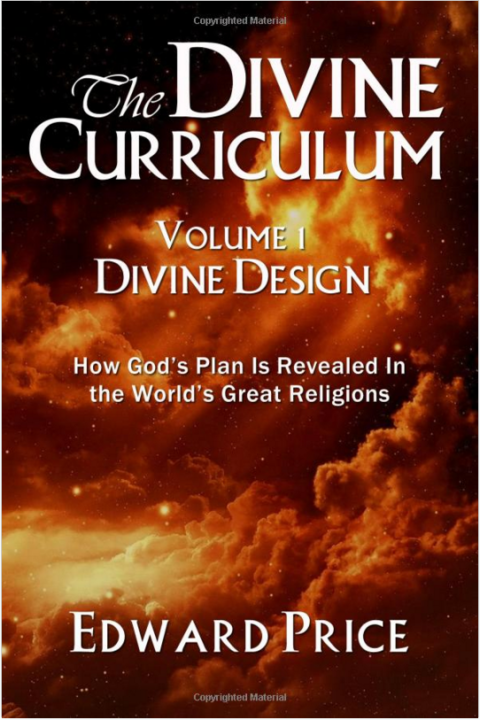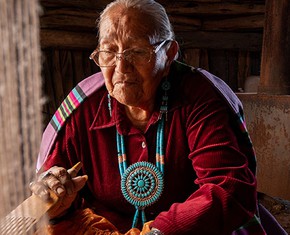The views expressed in our content reflect individual perspectives and do not represent the authoritative views of the Baha'i Faith.
Does a divine curriculum exist? Has the Creator revealed an ongoing scope of knowledge that we all can discover and understand? The Baha’i teachings answer those questions with a resounding Yes!
That divine curriculum, according to the primary principles of the Baha’i Faith, offers humanity assurance that there is only one God, tells us that there is a deep overall purpose for our creation, and reveals that the Creator has given us a series of divine educators throughout the course of human history.
RELATED: Word by Word: Easy Access to All the World’s Holy Scriptures
Only One God
There is just one God, the Baha’i teachings say, embracing a strongly monotheistic principle. That one Creator has sent humanity many great prophets and spiritual teachers throughout history in a succession of loving guidance and wisdom. The Baha’i teachings call that view “progressive revelation,” revealed by the teachings of all the world’s great religions. Baha’u’llah, the prophet and founder of the Baha’i Faith, encouraged everyone to:
Contemplate with thine inward eye the chain of successive Revelations … I testify before God that each one of these Manifestations hath been sent down through the operation of the Divine Will and Purpose, that each hath been the bearer of a specific Message, that each hath been entrusted with a divinely revealed Book and been commissioned to unravel the mysteries of a mighty Tablet.
Accordingly, the divine curriculum perspective on religion does not play the familiar game of “My guy is better than your guy,” which takes place so often in today’s discussions about religion. This non-partisan, non-sectarian principle does not engage in religious dialogue aimed at proving the superiority of one religious system over all the others. Instead, it approaches the world’s major religious systems with great appreciation, positive regard, and deep affection.
The Baha’i framework points out how the religions of the world connect and integrate with each other, coming together as elements of a larger whole — namely, the ancient, centuries-spanning, and ongoing story of God’s relationship with humanity.
This approach, entirely even-handed in its treatment of every divine educator, acknowledges the contributions and sacredness of each founder of the world’s great religions; maintains loyalties to all of those prophets and messengers; all while honoring and sharing the divine knowledge they revealed to humanity.
When people pray to God as Adonai (if one is a Jew), as the Father in Heaven (if one is a Christian), or as Allah (if one is a Muslim), the prayers are received by the same God, Who knows you, loves you, and understands what you need in response.
The Purpose of Our Creation
The second important principle of the divine curriculum holds that the God Who created us did so out of love and with an important purpose in mind — that we should learn to know Him and love Him. Regarding the Creator’s succession of divine messengers, the Baha’i teachings say:
… through the rise of these Luminaries of God the world is made new, the waters of everlasting life stream forth, the billows of loving-kindness surge, the clouds of grace are gathered, and the breeze of bounty bloweth upon all created things. It is the warmth that these Luminaries of God generate, and the undying fires they kindle, which cause the light of the love of God to burn fiercely in the heart of humanity.
This principle reveals our need for universal divine educators, for cooperating members of one faculty in humanity’s spiritual school.
God has given us many gifts, such as our rational minds — and God has also given us many needs. Certainly, we have important physical needs, but more importantly, humans have rational minds, and those minds need to be educated. As everyone knows, a child without an education will encounter many difficulties in life. So also, humanity.
All of humanity needs an educator, not just the educators in the public school systems, but universal divine educators God sends into our world at times and places of His choosing. The Baha’i teachings view these divine educators with a non-competitive outlook, treating all of them as members of one divine educational faculty in the school of God. We can think of the starting premise of that universal educational system as “All of creation is a classroom”.
To a large degree, the substance of human history has unfolded under the influence of these universal divine educators — the most momentous, world-influencing, civilization-building historical figures of all time. These great personages have been called messengers of God, prophets of God, and manifestations of God.
We know some of those divine educators, listed here in chronological order, as:
- Krishna
- Abraham
- Moses
- Zoroaster
- Buddha
- Jesus Christ
- Muhammad
- the Bab, and
- Baha’u’llah.
It’s all right if some of these names are more familiar to you than some others. That is a likely consequence of whatever exposure you have had to religion in your own life and in your own culture. Based on what you’ve heard before now, you might have positive or negative opinions about some of these divine educators, while others are completely unfamiliar to you. As we learn more about the divine curriculum framework, however, all of these names will become increasingly familiar, and you’ll be able to make up your own mind about them.
The divine curriculum framework accepts all these holy messengers as divine educators sent to humanity by the Creator.
Baha’u’llah, the most recent of them, declared that one should not raise any one of these figures above the other:
… thou hadst inquired which of the Prophets of God should be regarded as superior to others. Know thou assuredly that the essence of all the Prophets of God is one and the same. Their unity is absolute. God, the Creator, saith: There is no distinction whatsoever among the Bearers of My Message. They all have but one purpose; their secret is the same secret. To prefer one in honor to another, to exalt certain ones above the rest, is in no wise to be permitted.
(Yes, that may be controversial for many people — but this is the perspective offered by the Baha’i teachings and its divine curriculum approach, so please keep an open mind, and enjoy learning about all of them.)
The divine curriculum understands that each of these holy educators appeared in human history at a certain time and place. Much of what each messenger revealed is suited for a particular time and place. These divine educators also bring universal teachings, renewed and reiterated in every age.
RELATED: Where to Find the Newest Baha’i Principles
The golden rule: “Do unto others as you would have done unto you” — is the most obvious and frequently-noted example of a universal religious teaching. But upon investigation, there is much, much more that these divine educators have in common.
The Baha’i teachings look at both the universal and the particular contributions of the divine educators and place them in logical order according to the historical period in which each one of them appeared. When we do this, we may have a kind of “aha” moment, seeing the obvious linkage and relationship between the divine educators for the first time. In that moment, and with that perspective, we can see that together the divine educators have brought one unfolding curriculum to humanity.
All of this means that these great personages have propelled the advancement of human civilization in an orderly way, guiding humanity to greater heights of achievement, progress, sophistication, and knowledge. Each divine instructor builds upon the work of the earlier ones. When we recognize their interconnected nature, we become able to see that, since time immemorial, there has been a unified, beneficial, ever-evolving educational program authored by God and taught by the divine educators. This viewpoint invites us to perceive, understand, and appreciate the inherent unity, as well as the unique distinctions, of each of the divine educators and their faiths.
Of course, everyone also knows there have been many abuses, distortions, and tragedies associated with the story of religion. To be fair, we have to pay attention to those facts as well and strive to make sense of it all — not an easy task, but if we are truly honest students of history, then we cannot overlook that part of the story.
The Oneness of Humanity
This divine curriculum framework, with its description of a methodical universal divine education for humanity, necessarily implies, and even requires, that we view humanity as one.
The story of humanity is ultimately one story, ancient and never-ending, encompassing many peoples and nations across many ages. Baha’u’llah proclaimed:
The Great Being saith: O well-beloved ones! The tabernacle of unity hath been raised; regard ye not one another as strangers. Ye are the fruits of one tree, and the leaves of one branch.
We are truly one people. Humanity is one human race, created by one Creator, loved by Him in all its diversity, and instructed by Him through a series of great educators sent by Him across the ages.
One of the most joyful things anyone can do is journey through this ever-fascinating landscape of the never-ending divine curriculum. May all humanity learn together.

Edward Price began publishing his book series, ”The Divine Curriculum,” in 2015 with his publisher, Calumet Editions. You can learn more about Edward’s books here: divinecurriculum.com. “The Divine Curriculum” can also be found on Facebook, Instagram, Twitter/X, TikTok, and YouTube.
















Comments
Sign in or create an account
Continue with Googleor